Do you know how your body and mind evolve through the different stages of life? Read on to know how exactly your spirit evolves after every 7 year cycle of life!
It’s not a myth but rather a scientifically proven fact that our body and mind go through stages of evolution every 7 years, throughout our entire lifespan. All of us are changing every moment, and each of our cells is also changing.
According to Rudolf Steiner and other scientists, the 7 Year Evolution Cycles are extremely important to doctors, teachers, social scientists, and psychiatrists. This is because of the changes our body and mind undergo after every 7 year cycle.
The 7 Year Cycle: How Your Body And Mind Evolve Every 7 Years
Here’s how your body and mind transform through the experiences of life after each 7 year cycle.
1. 0-7 years:
This is the beginning of life, the most important stage in one’s life. At this period of time, we are driven by the instincts of hunger, the necessity for love, protection, and support, the feeling of pain, and the impact of the environment.
While this happens, our inner and mental structures are built which in later years allow us to feel, think, and be aware of our identities as individuals. We learn a lot of behavioral responses unconsciously and the culture we are born into has a strong influence on this.
An Australian aboriginal would react to a caterpillar by eating while someone from North Europe or America would behave in a different way. Our learning as babies depends on how we respond, with willingness or with fear.
The physical and glandular systems at birth are different from the ones in later years.
With the sexual organs yet to develop and a very large thymus that becomes smaller with age, we do not experience any sexual sensation and our responses to truth or lie are very primitive. Slowly, it is the social morality that the child develops.
Learning is one of the key activities of this period. We learn motor movements, speech, relationships we have with ourselves and with the environment, and also language(s) to communicate.
During this 7 year cycle starting from our birth, we are dependent on our loved ones for our physical, emotional, and social needs. If our loved ones leave us or we get the threat of their leaving, we experience feelings of jealousy, anger, or pain. If we fail to mature beyond this age, as adults, we will experience this at a greater level.
Read Why Family Scapegoats Become Lifelong Victims?
2. 7-14 years:
The development of the body and mind in the earlier phase is continued in the next 7 year cycle. The ideas, concepts, and associations that had begun are now being discovered by the child.
The child experiences physical and emotional development. Sexual organs slowly start maturing towards puberty.
The thymus considerably decreases in size promoting the development of right, wrong, and social responsibility. Adult teeth replace milk teeth. The child has started creating an inner world of their own with their own heroes, dreams, happiness, dangers, and imagination. The direction of the child’s interest is also visible at this point.
Associations with the outer world increase. The child learns to share, interact, and control earlier instincts in favor of surviving harmoniously in groups. The habits learned all this while becoming a part of the character of the child.
Read 6 Reasons Why Art Therapy Is Beneficial For Kids
3. 14-21 years:
This period of body and mind transformation is characterized by strong emotional and physiological changes with the dawn of puberty.
- We start becoming ‘self-conscious’
- We start appreciating art, music, and literature
- We can distinguish between the subtler tones of color.
- Our ideas of morality change.
- We become aware of our sexuality
- We tend to choose a partner for our own needs and have a difficult time figuring out our boundaries.
Independence is one of the key driving forces of this period. A number of us experience this urge to break away from home. Our childhood fades away leaving behind scars that affect our world. This stage needs to add maturity and dignity to us. If it doesn’t happen, then we are labeled as lacking maturity.
4. 21-28 years:
This 7 year cycle is the stage of refinement of body and mind. The child finally enters into the stage of adulthood physically, mentally, and emotionally.
We start creating the base of our career and relationships which will earn us respect in the larger world. The sparks of interest seen in earlier cycles have a definite shape and abilities are more developed now.
In relationships, we learn to choose our partners based on the human beings they are. We learn to live a life with them by loving, supporting, adjusting, respecting, and compromising without causing any harm to ourselves.
We act with our faculties of intuition, judgment, understanding, and insight. We start handling our relationship issues in a positive way and face the challenges of our professional lives.
If the personal problems aren’t healed now, we will be facing them in later years.
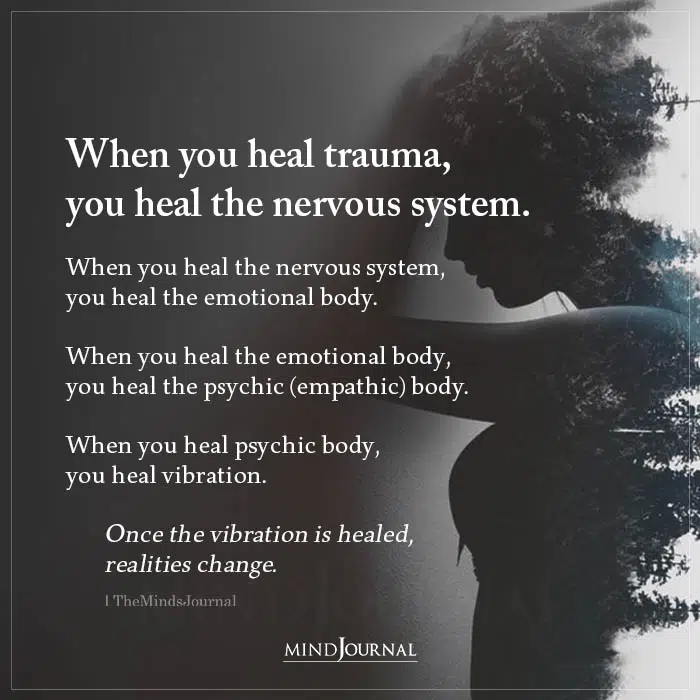
5. 28-35 years:
This is the phase where our creative process of mind comes to the forefront. Researchers and artists are at the peak of their careers at this time.
According to scientists, the association centers of the brain come to their peak at the age of 35. The emotions become subtle. Due to these changes in our body and mind, we understand ourselves better and we realize who we are and what are the characters forced on us by our family, friends, and society.
Read 5 Simple Habits That Will Make You A Creative Genius
6. 35-42 years:
A new restlessness in both body and mind can be felt during this 7 year cycle, depending on one’s personality and circumstances.
Our careers, habits, and relationships are evaluated, modified, and changed by us. We can identify what makes us feel better and also the ones that don’t. For those who haven’t reached their peak of realization or creativity in their earlier phase, this is the time they do.
7. 42-49 years:
This is the stage when major changes in our lives take place. We self-introspect and take major turns, be it in our careers or relationships.
If we haven’t made any mark in life already, we try to achieve it at this age. Emotional love is more of unconditional love now but a lot among us tend to retain that emotional age of a child. This is the age we start discarding stereotypes regarding our body and mind and start truly believing in ourselves.
Read How Your Brain Changes After Meditating for One Year
8. 49-56 years:
This is the age of spiritual awakening. With the loss of our strength and vitality, we look inwards. We accept the changes our body and mind go through. For the ones who haven’t realized who they are and what’s their purpose in life, this age is the age of extreme depression.
Read 14 Unique Symptoms Of A Spiritual Awakening
9. 56-63 years:
This is the age of accepting inner peace and embracing tranquility in life. There’s a great shift in adjusting to our aging bodies, our relationships, and our changing perceptions of the world around us.
10. 63-70 years:
At this period, we start having a deeper understanding of ourselves with the decrease in our interest in our external world. We tend to see the best side of things and become aware of death. Detachment is practiced during this time.
11. 70-77 years:
One can mature anytime but this is the period where one can connect to the inner self most. Unconditional love increases a lot and one starts accepting life in a greater manner.
12. 77-84 years onwards:
By this time, a new self has already developed. It has come out of the experiences of life already lived. The perceptions have widened and one lives life in a different way.
If you want to know more about how your body and mind change after every 7 year cycle, then check this video out below:
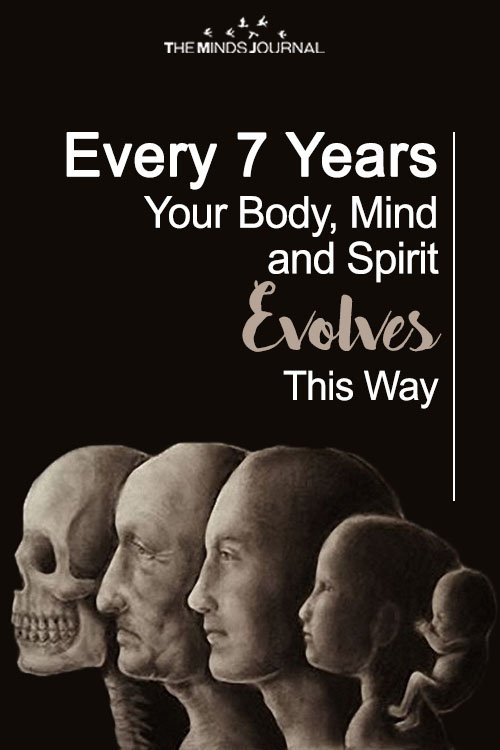
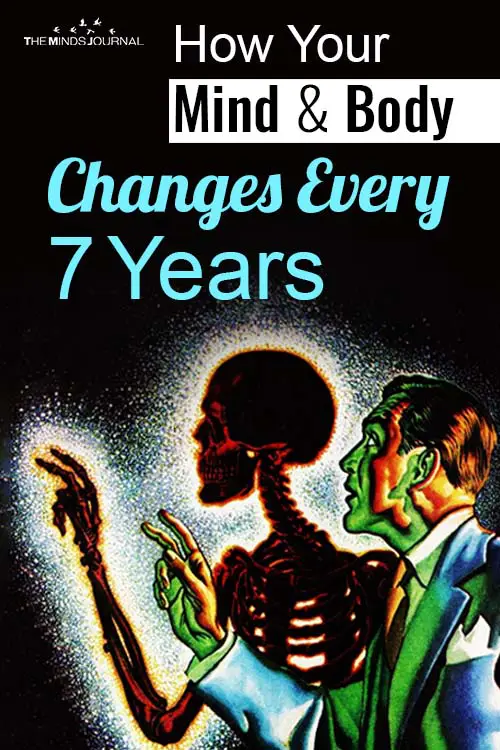
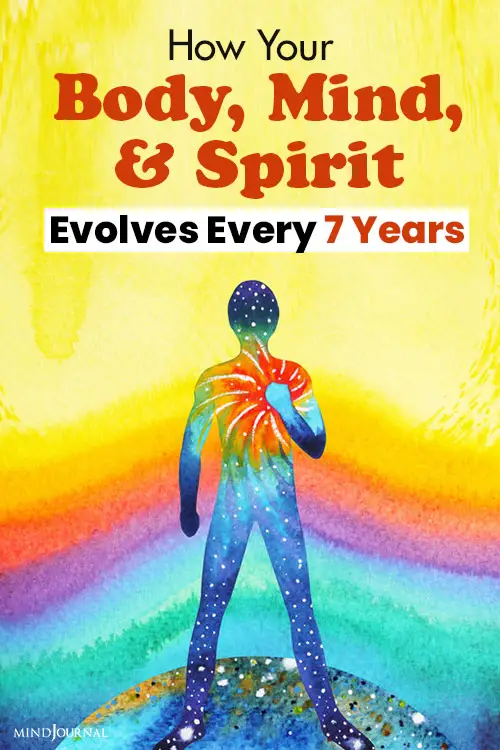
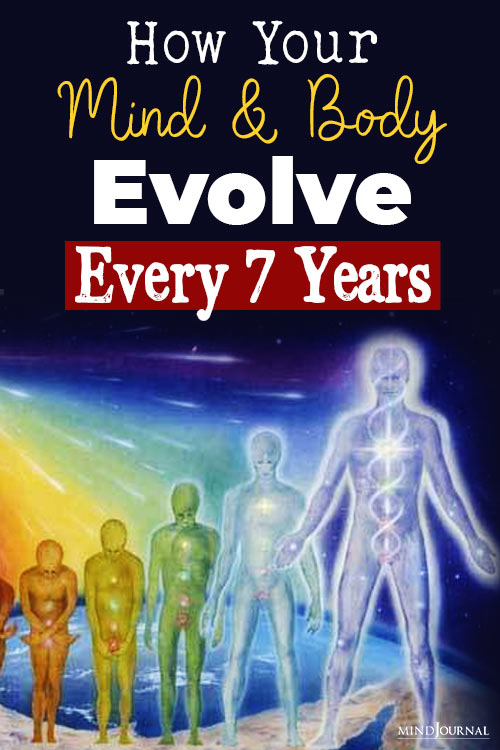
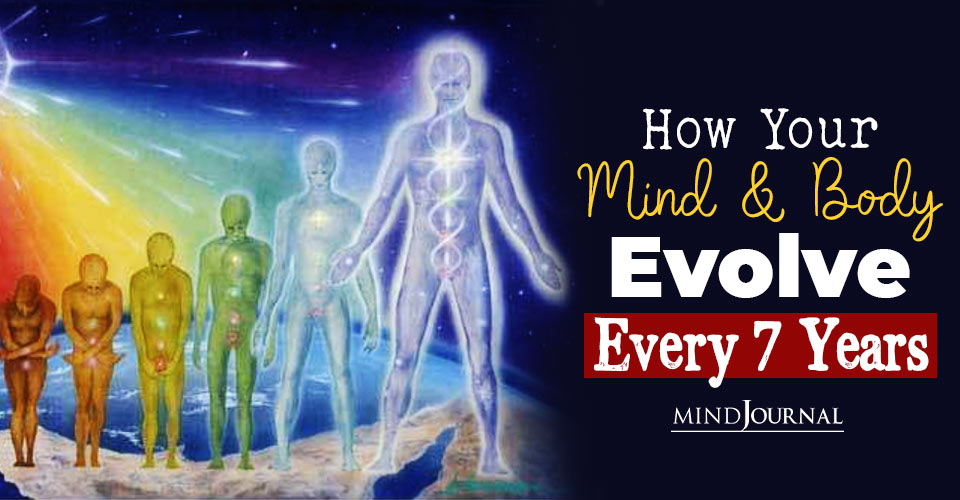







Leave a Reply
You must be logged in to post a comment.